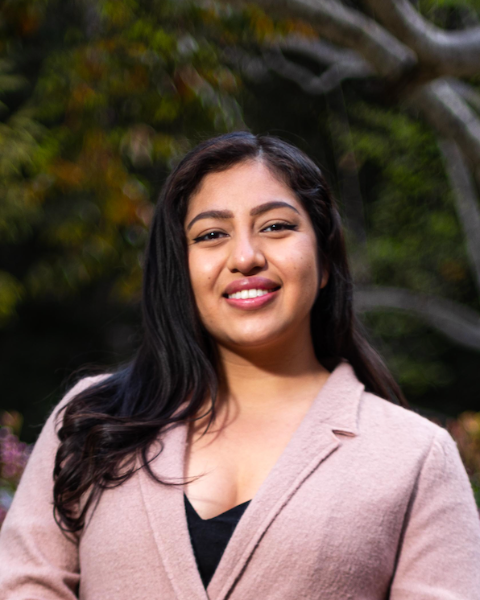Back
Feminist Scholarship
Whorearchy Dreams: Implications for Research and Practice with Sex Workers
Saturday, November 12, 2022
12:00 PM – 1:00 PM
Location: Poster 18

Kimberly Fuentes, MSW
PhD Student
UCLA Luskin Social Welfare
Los Angeles, California, United States
Author and Presenter(s)
Overview: This paper presentation will share takeaways for contemporary social work practice, research, and education from a participatory action research study co-led with sex workers. Specifically, we will explore how intersecting systems of oppression are magnified within sex worker communities and how social work can uplift crucial systems of social support.Proposal text: Aligned with feminist sex work scholars within social work such as Meg Panichelli, Moshoula Capous-Desyllas, and Yvette Butler (2021), my research supports the need to reject the “one size fits all” approach to working with people in the sex trades. By engaging in dialogue with this population, greater attention is paid to both their struggle for human rights and their efforts to thrive. In alignment with social work values, the present study uplifts the need to get to know sex workers through holistic methods of data collection that respects their personhood.
In the introductory segment of my presentation, I will be sharing the background on how I built a relationship with the Sex Worker Outreach Project - Los Angeles (SWOP-LA) and how this blossomed into a research partnership. Specifically, by utilizing the qualitative methods of photo-elicitation and dialogue aligned with participatory principles, this community-driven study considers how a Black feminist disability framework can be employed to explore how intersectionality weaves itself into the lives and networks of 13 sex workers (Capous-Desyllas, 2014). This will transition to the bulk of the presentation which will focus on the explanation of the sex worker-coined term, the “whorearchy”, a system of stratified social hierarchy that is externally and internally enforced on sex workers. This study found the whorearchy to be particularly harmful for marginalized sex workers, particulary Black and transwomen, by penalizing them economically and isolating them from systems of social support that are more accessible to white cisgender sex workers.
Finally, a piece of this study asked sex workers to reflect on their experiences with service providers and propose recommendations for how providers can foster sex worker inclusive environments. I will share the recommendations that participants provided and discuss the steps that the profession could take to further align ourselves in solidarity with sex workers. I conclude with a discussion on centering restorative sex worker narratives to examine the extent to which criminalization hinders sex worker solidarity and how similarly, the state’s role limits the ways social workers can support sex worker liberation.
In the introductory segment of my presentation, I will be sharing the background on how I built a relationship with the Sex Worker Outreach Project - Los Angeles (SWOP-LA) and how this blossomed into a research partnership. Specifically, by utilizing the qualitative methods of photo-elicitation and dialogue aligned with participatory principles, this community-driven study considers how a Black feminist disability framework can be employed to explore how intersectionality weaves itself into the lives and networks of 13 sex workers (Capous-Desyllas, 2014). This will transition to the bulk of the presentation which will focus on the explanation of the sex worker-coined term, the “whorearchy”, a system of stratified social hierarchy that is externally and internally enforced on sex workers. This study found the whorearchy to be particularly harmful for marginalized sex workers, particulary Black and transwomen, by penalizing them economically and isolating them from systems of social support that are more accessible to white cisgender sex workers.
Finally, a piece of this study asked sex workers to reflect on their experiences with service providers and propose recommendations for how providers can foster sex worker inclusive environments. I will share the recommendations that participants provided and discuss the steps that the profession could take to further align ourselves in solidarity with sex workers. I conclude with a discussion on centering restorative sex worker narratives to examine the extent to which criminalization hinders sex worker solidarity and how similarly, the state’s role limits the ways social workers can support sex worker liberation.
Learning Objectives:
- Upon completion, participants will learn how they can work collaboratively with sex workers in research and practice settings to identify tangible recommendations in creating a sex worker-inclusive environment.
- Upon completion, participants will be able to describe the intersectional social hierarchy that impacts the thriving of sex workers under criminalization and explore how they can disrupt the whorearchy in their own communities.
- Upon completion, participants will be able to describe the intersectional social hierarchy that impacts the thriving of sex workers under criminalization and explore how they can disrupt the whorearchy in their own communities.
